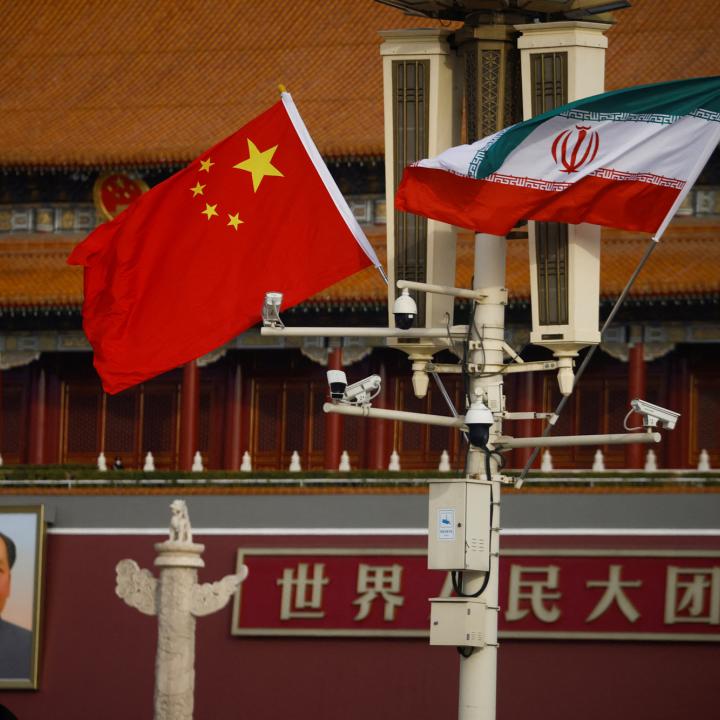
- Policy Analysis
- Policy Alert
China’s Response to Iran’s Attack Is an Opportunity for Washington

U.S. officials should remind their partners abroad that Beijing’s support for Tehran is jeopardizing regional stability.
When Iran attacked Israel on April 13, one of China’s largest state-controlled news outlets posted on X/Twitter, “Due to [international organizations’] failure, especially the [UN Security Council], to condemn Israel’s attacks on Iranian diplomatic facilities, Iran retaliated with strategic intelligence, missiles and drones, successfully destroying key military targets in Israel.” The Global Times post was deleted a few hours later, but Chinese officials have since echoed the sentiment. In an April 15 phone call with his Iranian counterpart Hossein Amir-Abdollahian, Chinese foreign minister Wang Yi “noted Iran’s statement that its action taken was limited and was an act of self-defense in response to the attack against the Iranian consulate in Syria.” He then stated, “Iran can handle the situation well and spare the region further turmoil.”
This episode is consistent with Beijing’s broader messaging since Hamas attacked Israel last October. Chinese officials have refrained from condemning Hamas directly, instead placing the blame on Israel and, by extension, the United States. For example, in a phone call with Saudi foreign minister Faisal bin Farhan at the start of the Gaza war, Wang Yi stated that Israel’s actions went “beyond the scope of self-defense.” Indeed, Chinese officials have consistently condemned the “indiscriminate use of force,” with President Xi Jinping describing Israel’s actions as “collective punishment” of the Gazan people in November. Beijing’s messaging has even seemingly justified Hamas’s attack at times. During a February hearing at the International Court of Justice, Foreign Ministry official Ma Xinmin argued that “the Palestinian people’s use of force to resist foreign oppression and to complete the establishment of an independent state is an inalienable right well founded in international law.” Meanwhile at home, anti-Israel and anti-Semitic sentiments are rampant in Chinese news and social media.
By responding in similar fashion to Iran’s unprecedented drone and missile barrage against Israel, Beijing has presented Washington with another opportunity to show regional partners why closer relations with China can be perilous. For years, Chinese officials sought to position themselves as unbiased mediators in the Middle East, balancing regional relationships by repeatedly deferring to seemingly neutral concepts such as “respect for sovereignty,” “non-interference in each other’s internal affairs,” and “win-win cooperation.” Yet that approach has changed since October 7—Beijing has been consistently tying Israel’s actions to U.S. support in an attempt to place the blame on both and curry favor with countries who oppose Israel’s actions.
Now, however, the region has witnessed China’s open support for an Iranian attack that violated the sovereignty of several Arab countries and demonstrated once again how Beijing’s relationship with Tehran threatens their interests. At this fraught moment, the United States should vocally remind countries in the Middle East and around the world about the limits of China’s “respect for sovereignty.”
Grant Rumley is the Meisel-Goldberger Fellow in The Washington Institute’s Diane and Guilford Glazer Foundation Program on Great Power Competition and the Middle East. Rebecca Redlich is a research assistant in the program.



